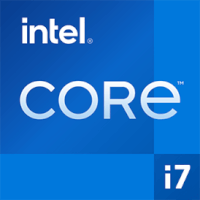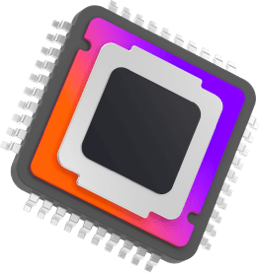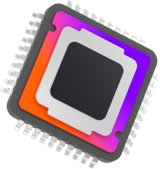| Intel Core i7-4702HQ | AMD Epyc 7501 | |
| 37 W | Max TDP | 180 W |
| NA | Power consumption per day (kWh) | NA |
| NA | Running cost per day | NA |
| NA | Power consumption per year (kWh) | NA |
| NA | Running cost per year | NA |
Intel Core i7-4702HQ vs AMD Epyc 7501

The Intel Core i7-4702HQ operates with 4 cores and 8 CPU threads. It run at 3.20 GHz base 2.90 GHz all cores while the TDP is set at 37 W.The processor is attached to the BGA 1364 CPU socket. This version includes 6.00 MB of L3 cache on one chip, supports 2 memory channels to support DDR3-1600 RAM and features 3.0 PCIe Gen 16 lanes. Tjunction keeps below -- degrees C. In particular, Haswell H Architecture is enhanced with 22 nm technology and supports VT-x, VT-x EPT, VT-d. The product was launched on Q2/2013

The AMD Epyc 7501 operates with 32 cores and 8 CPU threads. It run at 3.00 GHz base 2.60 GHz all cores while the TDP is set at 180 W.The processor is attached to the SP3 CPU socket. This version includes 64.00 MB of L3 cache on one chip, supports 8 memory channels to support DDR4-2666 RAM and features 3.0 PCIe Gen 128 lanes. Tjunction keeps below -- degrees C. In particular, Naples (Zen) Architecture is enhanced with 14 nm technology and supports AMD-V, SVM. The product was launched on Q3/2017
Intel Core i7-4702HQ
Compare Detail
| 2.20 GHz | Frequency | 2.00 GHz |
| 4 | Cores | 32 |
| 3.20 GHz | Turbo (1 Core) | 3.00 GHz |
| 2.90 GHz | Turbo (All Cores) | 2.60 GHz |
| Hyperthreading | Yes |
|
| Overclocking | No |
|
| normal | Core Architecture | normal |
| Intel HD Graphics 4600 | GPU | no iGPU |
| 1.15 GHz | GPU (Turbo) | No turbo |
| 22 nm | Technology | 14 nm |
| 1.15 GHz | GPU (Turbo) | No turbo |
| 11.1 | DirectX Version | |
| 3 | Max. displays | |
| DDR3-1600 | Memory | DDR4-2666 |
| 2 | Memory channels | 8 |
| Max memory | ||
| ECC | Yes |
|
| -- | L2 Cache | -- |
| 6.00 MB | L3 Cache | 64.00 MB |
| 3.0 | PCIe version | 3.0 |
| 16 | PCIe lanes | 128 |
| 22 nm | Technology | 14 nm |
| BGA 1364 | Socket | SP3 |
| 37 W | TDP | 180 W |
| VT-x, VT-x EPT, VT-d | Virtualization | AMD-V, SVM |
| Q2/2013 | Release date | Q3/2017 |
Cinebench R20 (Single-Core)
Cinebench R20 is the successor of Cinebench R15 and is also based on the Cinema 4 Suite. Cinema 4 is a worldwide used software to create 3D forms. The single-core test only uses one CPU core, the amount of cores or hyperthreading ability doesn't count.
Cinebench R20 (Multi-Core)
Cinebench R20 is the successor of Cinebench R15 and is also based on the Cinema 4 Suite. Cinema 4 is a worldwide used software to create 3D forms. The multi-core test involves all CPU cores and taks a big advantage of hyperthreading.
Cinebench R15 (Single-Core)
Cinebench R15 is the successor of Cinebench 11.5 and is also based on the Cinema 4 Suite. Cinema 4 is a worldwide used software to create 3D forms. The single-core test only uses one CPU core, the amount of cores or hyperthreading ability doesn't count.
Cinebench R15 (Multi-Core)
Cinebench R15 is the successor of Cinebench 11.5 and is also based on the Cinema 4 Suite. Cinema 4 is a worldwide used software to create 3D forms. The multi-core test involves all CPU cores and taks a big advantage of hyperthreading.
Geekbench 5, 64bit (Single-Core)
Geekbench 5 is a cross plattform benchmark that heavily uses the systems memory. A fast memory will push the result a lot. The single-core test only uses one CPU core, the amount of cores or hyperthreading ability doesn't count.
Geekbench 5, 64bit (Multi-Core)
Geekbench 5 is a cross plattform benchmark that heavily uses the systems memory. A fast memory will push the result a lot. The multi-core test involves all CPU cores and taks a big advantage of hyperthreading.
iGPU - FP32 Performance (Single-precision GFLOPS)
The theoretical computing performance of the internal graphics unit of the processor with simple accuracy (32 bit) in GFLOPS. GFLOPS indicates how many billion floating point operations the iGPU can perform per second.
Geekbench 3, 64bit (Single-Core)
Geekbench 3 is a cross plattform benchmark that heavily uses the systems memory. A fast memory will push the result a lot. The single-core test only uses one CPU core, the amount of cores or hyperthreading ability doesn't count.
Geekbench 3, 64bit (Multi-Core)
Geekbench 3 is a cross plattform benchmark that heavily uses the systems memory. A fast memory will push the result a lot. The multi-core test involves all CPU cores and taks a big advantage of hyperthreading.
Cinebench R11.5, 64bit (Single-Core)
Cinebench 11.5 is based on the Cinema 4D Suite, a software that is popular to generate forms and other stuff in 3D. The single-core test only uses one CPU core, the amount of cores or hyperthreading ability doesn't count.
Cinebench R11.5, 64bit (Multi-Core)
Cinebench 11.5 is based on the Cinema 4D Suite, a software that is popular to generate forms and other stuff in 3D. The multi-core test involves all CPU cores and taks a big advantage of hyperthreading.
Estimated results for PassMark CPU Mark
Some of the CPUs listed below have been benchmarked by CPU-Comparison. However the majority of CPUs have not been tested and the results have been estimated by a CPU-Comparison’s secret proprietary formula. As such they do not accurately reflect the actual Passmark CPU mark values and are not endorsed by PassMark Software Pty Ltd.
Monero Hashrate kH/s
The crypto currency Monero has been using the RandomX algorithm since November 2019. This PoW (proof of work) algorithm can only efficiently be calculated using a processor (CPU) or a graphics card (GPU). The CryptoNight algorithm was used for Monero until November 2019, but it could be calculated using ASICs. RandomX benefits from a high number of CPU cores, cache and a fast connection of the memory via as many memory channels as possible

Electric Usage Estimate


